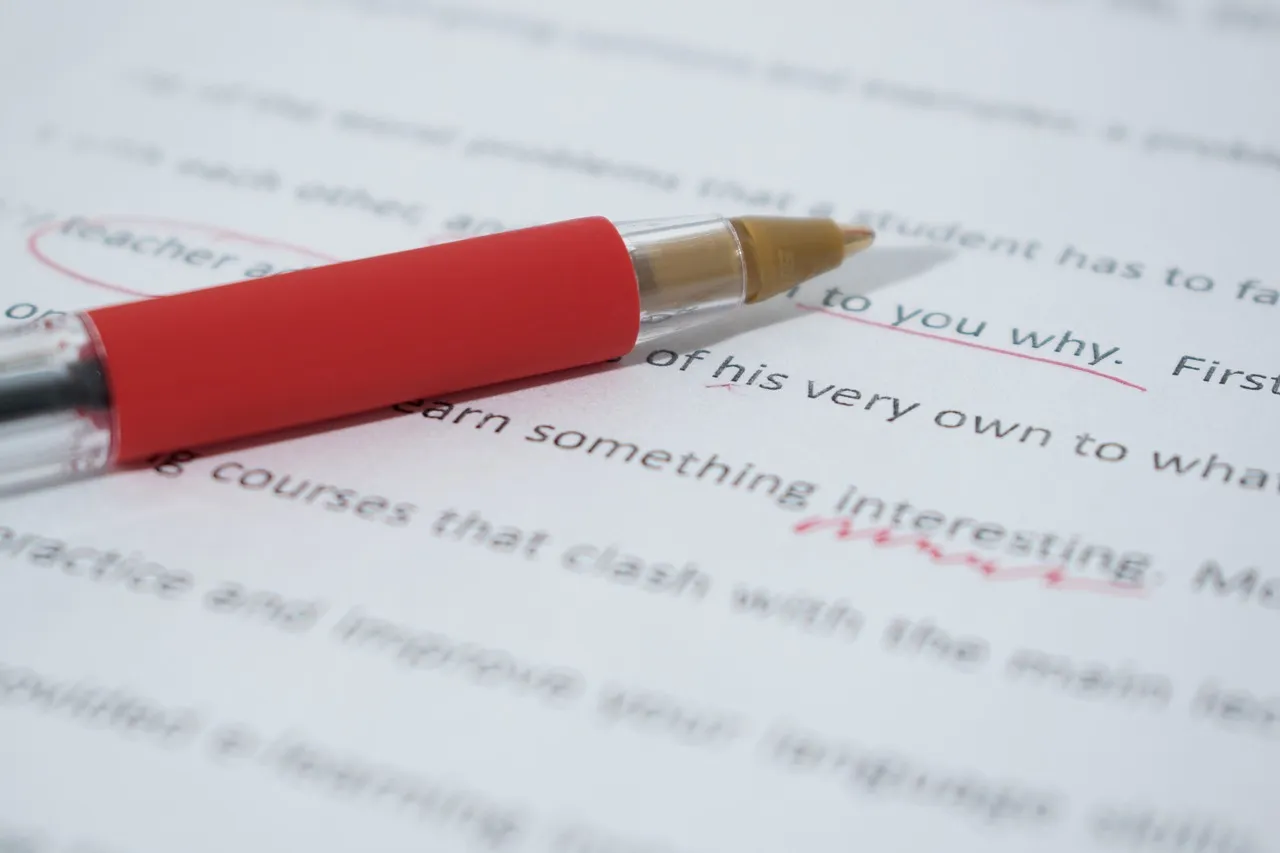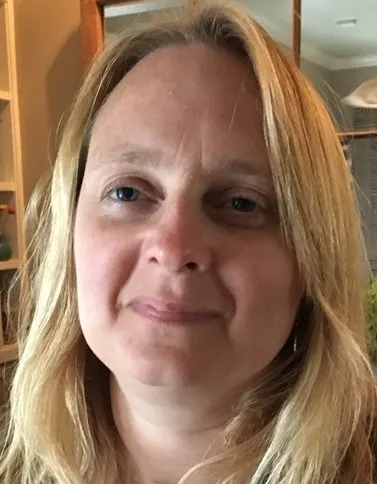How to Be a Better Editor of Your Own Work
Alyssa Colton, Ph.D. | Jan. 17, 2017

The most effective writers know that no matter how skilled or experienced they are, it’s always a good idea to have someone else read their work. When we write a piece, we know what we want to say, and it can be difficult to see our own errors, inconsistencies, and unclear spots.
Yet becoming a better editor of your own work can only help you become a better writer, and an editor may not always be available to help. While getting a professional to review your work, whether for a journal submission, research report, or dissertation, is always a good idea, the better you become at editing your own work, the less likely it will be that errors will creep in.
So how can you become a better editor of your own work (paper, thesis, etc.)? You need to learn some of the tricks that professional writers and editors use. After drafting your document, it should go through the following basic stages: revision, copy editing, and proofreading.
Step One: Revision
Anyone editing their own scientific writing needs to get some distance from it. The best way to do that is to take time away from it. Create a schedule for writing your paper that incorporates some “rest” time in which you can take some time away from it. A few days are ideal; a few hours are good; a 10-minute break, while not ideal, is better than nothing.
During your break, try not to think about it too much.
Research into creativity
shows that when you give an idea time to work itself out on its own, you can often think of new approaches or solutions. After you take some time away from it, you can come back to your document with fresh eyes and a fresh mind.
Receive Free Grammar and Publishing Tips via Email
When approaching your draft at first, pay attention to the ideas. Look at the central message you are trying to convey.
Are you getting your message across?
Is your argument clear?
Does something more need to be explained? What evidence is missing?
Are all the parts there that need to be there? Is there anything that distracts from your points?
At this point, you are revising —reworking your ideas. Try not to get bogged down on spelling, grammar, or style issues.
Step Two: Copy editing
Before the next stage, take another break. One way to create distance at any stage, but can be especially useful at this point, is to read your written document aloud. By changing the manner of reading, you can often catch issues that you had not heard or thought of before. Having someone else read your research paper or dissertation aloud may be helpful, too.
Once you have your paper or dissertation into a form you are happy with, you can now be your own copy editor.
A
copy editor
closely checks papers for issues in spelling, grammar, punctuation, citations, usage, and consistency. For scholarly works, this also includes checking the accuracy of the technical language.
This is also the point where you check that you have everything needed (formatting).
For example, does the journal have a word count or page count limitation?
Does the dissertation have specific guidelines you need to follow?
What citation style do they want you to use? What else do they require?
Keep in mind that when copy editing, you don’t want to get too involved in the ideas. If you need to rework a sentence, that’s fine, but at this point, you should be focusing on the fine points.
If you find yourself getting stuck on or wanting to change your ideas or organization, return to step one (revision). Even if the publisher provides copy editing after your paper is accepted, its is still a good idea to make sure your paper is as error-free as possible before submitting your manuscript to make a good impression on the journal editor and reviewers (or your committee members, if its a thesis or dissertation).
Step Three: Final proofreading
Proofreading is the last step before submitting your paper, report, dissertation, or thesis. This is where you run your spell checker (if you haven’t already) and take a read through your manuscript for any further mistakes you might catch or new errors that may have been introduced during the editing process.
Again, at this point, you should not be revising, but simply taking a light look at what are called surface errors—spelling, punctuation, grammar, and citations. This is the essence of proofreading .
Do a final check in your paper against any guidelines you have been given. Make sure you set up your title page, headers, and anything else according to the guidelines specified by the journal or style guide (double check the formatting of your manuscript for the journal).
Journal editors often complain that many writers simply don’t follow guidelines, and you don’t want that to be a reason for having your scientific manuscript rejected.
Improving your writing and English grammar skills
Clearly, a good editor needs to have a good command of the principles of English writing and grammar. Understanding these principles and having a sense of your weaknesses is important for becoming a better editor of your own work. Without an editor, it can be difficult to know where your weaknesses are. It’s a good idea to keep a notebook of issues that come up. Whenever you have a question or are unsure of something, write them down in your notebook.
For example, copy editors typically keep what’s called a style sheet that helps them track what decisions they’ve made about words and phrases, and this is a good habit to start. For example, if you’re unsure if an acronym has periods or not, put that on your style sheet once you’ve looked it up. You’ll be able to refer to it when that issue comes up again, whether in the same document or another one; it can also be used during the proofreading process. A style sheet also saves you time from looking up things you may have already looked up previously.
Research and take notes on any areas of struggle. If you find yourself having to look up what a run-on sentence is, you should consider jotting down the definition and an example. Look online for practice exercises that will help you strengthen areas where you need help. Review articles, such as those on grammar that are posted on this blog , about common errors will help you spot what areas you might have trouble with. There is also a post of common grammar websites that may be useful to you. Also, be sure to invest in a good grammar reference book to keep handy when you’re writing.
In the end, a professional editor can really be a great help to your work. Professional editors, like those at Falcon Scientific Editing , can view your scientific writing from fresh angles and catch errors you may have missed.
Whether or not you hire a professional editing company , you will always see benefits from becoming a better editor of your own work!
References
1. Colton, Alyssa. “ Five Common Grammar Mistakes Scientists Make in Publications .” Falcon Scientific Editing. October 18, 2016. Accessed January 13, 2017.
2. “ Grammar Exercises .” Purdue Online Writing Lab. Accessed January 13, 2017.
3. Gregoire, Carolyn. “ 18 Things Highly Creative People Do Differently .” Huffington Post . March 4, 2014. Accessed January 13, 2017.
4. Hargittai, Eszter. “ From Review to Publication .” Inside Higher Ed. September 26, 2011. Accessed January 13, 2017.
Other articles that may interest you:
Top Ten Phrases to Avoid in Scientific Writing
The Proper Use of Articles in English Writing
Why Writing and Editing are So Important for Scientists
Comments or Suggestions?
Complete our Blog Feedback Survey and Receive 10% Off Your Next Order at Falcon Scientific Editing!
About the Author:
 Dr. Alyssa Colton has a Ph.D. in English from the University at Albany, State University of New York (SUNY). She has taught and worked with students of all levels and backgrounds on writing skills for 20 years. She is a freelance writer and editor specializing in science, health, productivity and career development.
Dr. Alyssa Colton has a Ph.D. in English from the University at Albany, State University of New York (SUNY). She has taught and worked with students of all levels and backgrounds on writing skills for 20 years. She is a freelance writer and editor specializing in science, health, productivity and career development.
Topics : Scientific Writing Editing
